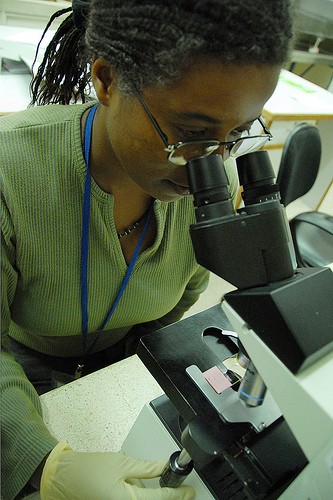New Fecal Test Nearly as Accurate as Colonoscopy

In unprecedented results, a take-home noninvasive colon cancer screening proved to be 92 percent effective at detecting the potentially deadly cancer, according to a recent study.
The study was published in the New England Journal of Medicine and sought to compare the effectiveness of three types of colon cancer screenings. One of these screenings, the colonoscopy, is considered the most effective and accurate form of colon cancer screening, but remains extremely invasive, time consuming, and uncomfortable for patients. The other two tests were self-submitted fecal tests that rely on detecting signs of colon cancer -- like blood -- in the stool of a patient.
According to the study, one fecal test is what is currently commercially available in the U.S. with long-standing Food and Drug Administration (FDA) approval. It has long been known that this particular test is not nearly as accurate as a colonoscopy. The second fecal test is a newly developed multi-target test still pending FDA approval. This test not only tests for blood, but also for samples of abnormal DNA coming from a tumor. The DNA aspect of this testing will supposedly make the non-invasive colon screening far more accurate than its traditional counterpart, if only less accurate than a standard colonoscopy.
After screening approximately 10,000 healthy participants past the age of 50 with all three methods of testing.
Colonoscopy, which was treated as the standard for the study, revealed signs of early colon cancer in 65 of the participants. Unsurprisingly, the standard fecal testing detected only a portion of that, revealing colon cancer in only 48 participants. However, the new DNA fecal test detected colon cancer in 60 of the 65 participants, showing a 92 percent accuracy, if the colonoscopy screening are to be considered 100 percent accurate.
This is great news for patients who do not have the time or are simply physically unable to undergo a complete colonoscopy. Colon cancer screening is an extremely important preemptive measure to be taken against colon cancer, which is estimated to kill nearly 50,000 Americans a year, according to the U.S. national cancer institute. Recent numbers have shown that U.S. citizens are becoming increasingly aware of an annual test's necessity, with colon cancer screening rates rising almost yearly. Still, it is the hope of researchers that the inclusion of an accurate non-invasive colon cancer screening will raise those numbers even more.
The study was published in The New England Journal of Medicine on March 19.
Mar 19, 2014 05:14 PM EDT





